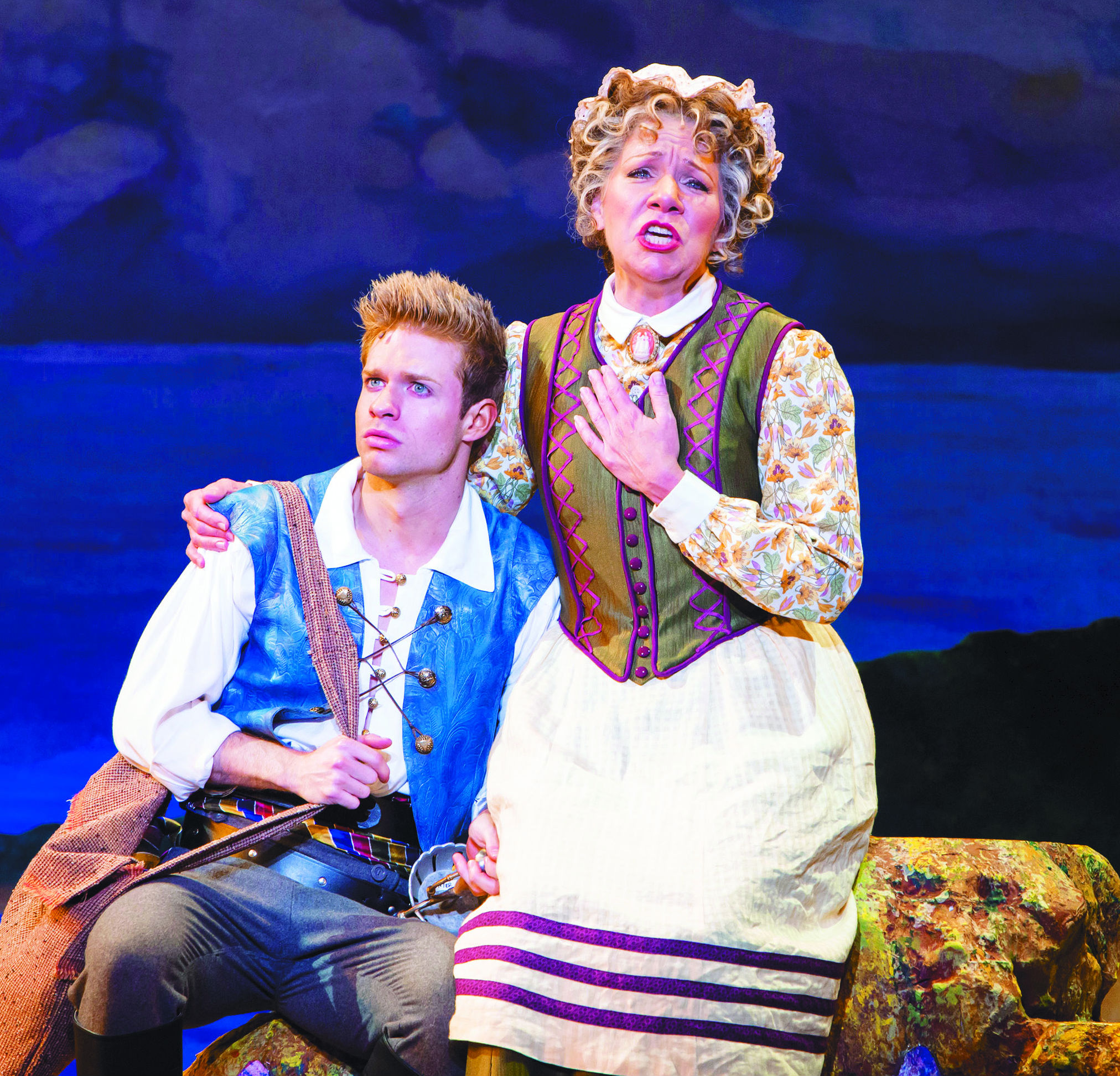Somehow, after a century as a “comic opera” (or “operetta,” a more accurate and more obsolete term), Gilbert and Sullivan’s The Pirates of Penzance became a “musical.” The 5th Avenue Theatre posits this distinction in the program notes, which call it “by far the oldest show in the musical theater repertory”—and then in the next paragraph mention H.M.S. Pinafore, which predates Pirates by a year and a half.
This switch surely dates from Joseph Papp’s Broadway production of 1981—the one that launched Kevin Kline’s career, revitalized Linda Ronstadt’s, and capped Rex Smith’s. I was a burgeoning G&S enthusiast at the time, with Pirates my gateway drug, and was thrilled to see it get the attention—and even more thrilled when it was chosen as our high school’s spring show my senior year. Passed over as student director (why?—not only did I have the show memorized, I was one of the handful of students who had heard of Gilbert and Sullivan at all ), I moved on to college. There, after seeing subsequent stagings that overlooked the virtues of Papp’s approach and doubled down on its vulgarities, I eventually realized that if I wanted to see Pirates done right, I would have to do it myself. Recruiting every acquaintance I could, I directed (and conducted and choreographed) not the whole opera, but a sizable chunk of Act 1.
Yet the 5th Avenue’s Pirates, inexplicably, follows the Broadway precedent rather than the East Lansing, Michigan one. I hesitate to call this the Broadway “version,” since almost nothing of the text and little of the score is changed from the moment the ink on Sullivan’s manuscript dried. And what is omitted is scarcely missed: the overture (a makeshift medley cobbled together by Sullivan’s assistant) and a verse of “Sighing softly to the river” that only delays the show’s climax. Bruce Monroe’s reorchestrations for a standard Broadway pit band are garish (he can’t be trusted with the suspended cymbal, but who these days can?), though admittedly Sullivan’s original is skillful but not more than serviceable.
This approach, basically, is bigger and brasher, which has its pros and cons. Since Pirates is already a sendup of overheated Victorian melodrama, there’s only so much camp it can take; if an entire performance is dialed up to 11, then how can you tell what’s parodic about it? In director James Rocco’s hands, hardly a line or a bit of business doesn’t get italicized. Among the pros is the prose: The cast knows what the words mean, and makes sure the audience does, too. It sounds simple, but it’s not a given in G&S productions, and the care these actors take with the delivery of the dialogue for maximum comprehensibility and plausibility—even the purplest lines—is exemplary.
At its best, this italicization brings out Gilbert’s subtlest, slyest ironies—for example, the happy little shrug from Anne Eisendrath as heroine Mabel, smartly calculated to point up the joke in the lyric “He will be faithful to his sooth/ ’Til we are wed, and even after.” It might seem this would be the result of casting singing actors rather than acting singers—and certainly the infallible expertise of Seattle stage stalwarts like Anne Allgood and David Pichette plays its part—but singing is by no means stinted. With their fresh, attractive sound and solid high notes, Eisendrath and Hunter Ryan Herdlicka, as tenor lead Frederic, lead a vocally strong ensemble. At its worst—well, for example, the Pirate King (Brandon O’Neill) jumps in the air as he says the words “leap year.” Meant to add snap, too much of this can weigh a show down, a risk this Pirates just skirts all night. It’s less a matter of purism vs. modernization than of trusting the material, making a savvy calculation of how much help a contemporary audience will need.
Sportingly, the
Pirates
program gives a shout-out to the Seattle Gilbert and Sullivan Society’s concurrent production of The Gondoliers. This late-period opera (1889) boasts neither the team’s wittiest book, most interesting story, most likable characters, sharpest satire, or most memorable score. It can sparkle—and did, the last time the Society staged it, in 2003—but it needs a special zing and doesn’t get it here, at least not up to the company’s usual standard. As a result, the show’s plot hole never gaped wider: One of the two title characters is really the long-lost heir to a throne, but after this premise is set up in Act 1, we just wait out Act 2 for the revelation, and it’s the cast’s duty to beguile us in the meantime. Thing is, the one character who knows who the rightful heir is has absolutely no reason to keep it a secret, so why are we waiting? Sloppy, Gilbert. Sloppy.
gborchert@seattleweekly.com
THE PIRATES OF PENZANCE 5th Avenue Theatre, 1308 Fifth Ave., 625-1900. $29 and up. Runs Tues.–Sun; see 5thavenue.org for exact schedule. Ends Aug. 4.
THE GONDOLIERS Seattle Repertory Theatre, Seattle Center, 800-838-3006. $16–$40. Runs Fri.–Sun.; see pattersong.org for exact schedule. Ends July 27.







